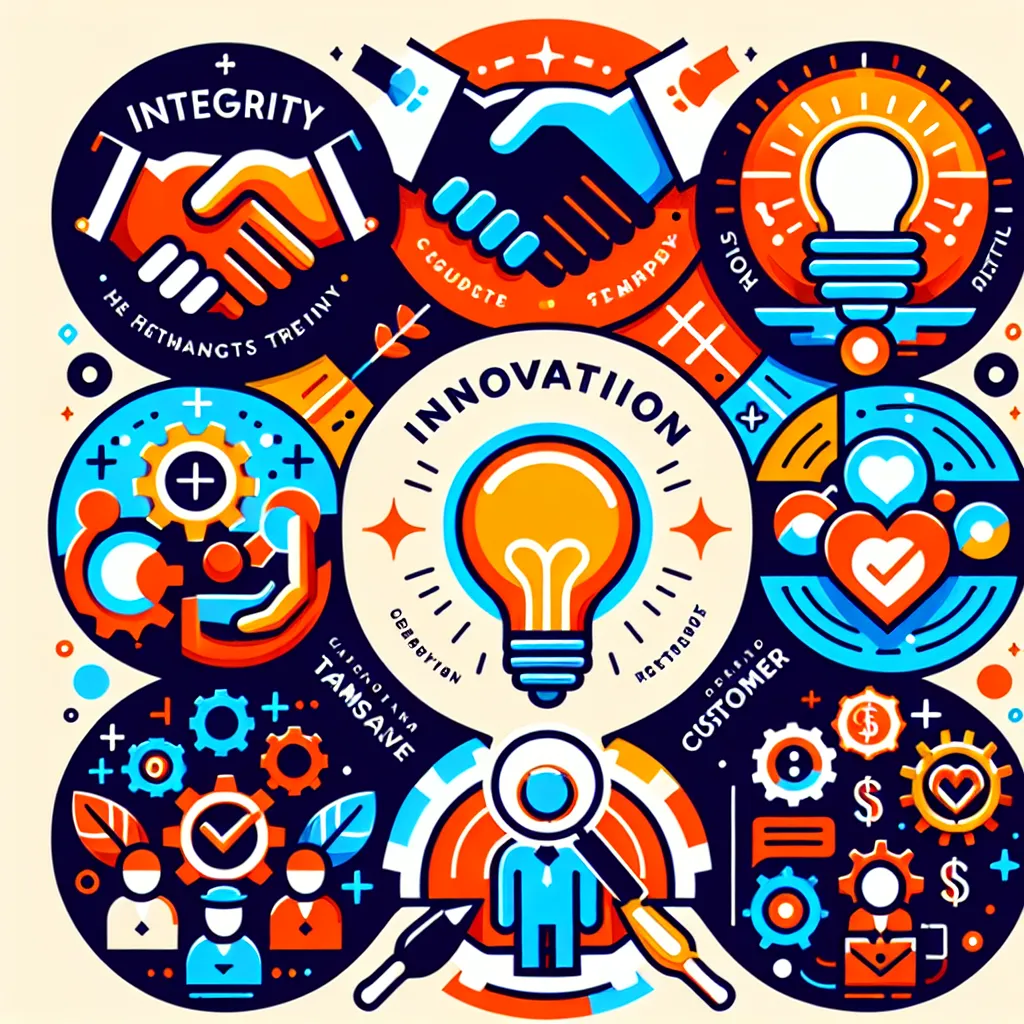Are you preparing for a job interview and feeling anxious about the prospect of an unstructured format? Don’t worry! Unstructured interviews can actually be a great opportunity to showcase your skills and personality. In this comprehensive guide, we’ll explore effective strategies to help you navigate and excel in an unstructured interview setting.
Understanding Unstructured Interviews
Unstructured interviews, also known as non-directive or informal interviews, are conversations that don’t follow a rigid set of predetermined questions. Instead, they flow more naturally, allowing the interviewer to delve deeper into topics based on your responses. This format can be challenging, but it also gives you the chance to highlight your strengths and experiences more organically.
Why Employers Use Unstructured Interviews
Employers often opt for unstructured interviews to:
- Assess your communication skills
- Evaluate your ability to think on your feet
- Get a sense of your personality and cultural fit
- Explore your experiences in more depth
- Allow for a more natural conversation
Understanding these motivations can help you prepare more effectively and approach the interview with confidence.
 Preparing for an unstructured interview
Preparing for an unstructured interview
Preparing for an Unstructured Interview
While you can’t predict exactly what questions will be asked, you can still prepare thoroughly for an unstructured interview. Here are some key steps:
- Research the company extensively
- Review your resume and be ready to discuss any part of it
- Prepare stories and examples that highlight your skills and experiences
- Practice answering common interview questions
- Develop a list of questions to ask the interviewer
Researching the Company
Thorough research about the company is crucial. This knowledge will help you tailor your responses and ask insightful questions. Look into:
- The company’s mission and values
- Recent news or developments
- Products or services
- Company culture
- Industry trends
Reviewing Your Resume
Be prepared to discuss any aspect of your resume in detail. For each item:
- Refresh your memory about specific projects or achievements
- Think about how your experiences relate to the job you’re applying for
- Prepare to explain any gaps or career transitions
Preparing Stories and Examples
Develop a repertoire of stories that demonstrate your skills and experiences. Use the STAR method (Situation, Task, Action, Result) to structure your examples. This approach helps you provide concise, relevant answers that showcase your abilities.
Strategies for Handling Unstructured Interview Questions
During an unstructured interview, you may encounter a variety of question types. Here are some strategies for handling different scenarios:
Open-ended Questions
Example: “Tell me about yourself.”
Strategy:
- Start with a brief overview of your professional background
- Highlight key experiences relevant to the position
- End with why you’re interested in this particular role
Sample Answer: “I’m a marketing professional with over five years of experience in digital advertising. I’ve led campaigns that increased client engagement by 30% and developed innovative social media strategies. My passion for data-driven marketing and creative problem-solving has drawn me to this role at your company, where I believe I can contribute significantly to your team’s success.”
Behavioral Questions
Example: “Describe a time when you had to deal with a difficult team member.”
Strategy:
- Use the STAR method
- Focus on your actions and the positive outcome
- Demonstrate key skills like communication and problem-solving
Sample Answer: “In my previous role, I worked on a project with a team member who consistently missed deadlines. I scheduled a private meeting to understand the underlying issues. It turned out they were overwhelmed with other responsibilities. Together, we created a prioritization system and I offered to help with some tasks. This resulted in improved productivity, and we completed the project on time. This experience enhanced my leadership and problem-solving skills.”
Hypothetical Scenarios
Example: “How would you handle a situation where a client is unhappy with our service?”
Strategy:
- Think through the scenario logically
- Emphasize your problem-solving approach
- Highlight relevant skills or experiences
Sample Answer: “First, I would listen carefully to the client’s concerns to fully understand the issue. Then, I’d apologize for the inconvenience and assure them that we take their satisfaction seriously. I would propose a solution or, if needed, consult with my team to develop the best approach. Throughout the process, I’d keep the client informed and follow up to ensure their satisfaction. In my previous role, I successfully turned around a similar situation, which resulted in the client becoming a long-term partner.”
Handling Unexpected or Difficult Questions
In an unstructured interview, you might encounter questions that catch you off guard. Here’s how to handle them:
- Take a moment to think: It’s okay to pause briefly to gather your thoughts.
- Ask for clarification if needed: “Could you please elaborate on what you mean by…?”
- Be honest if you don’t know something: “I’m not familiar with that specific scenario, but here’s how I would approach a similar situation…”
- Relate to your experiences: Even if you haven’t encountered the exact situation, draw parallels to relevant experiences you have had.
Common Pitfalls to Avoid
- Rambling: Stay focused and concise in your answers.
- Being too rigid: Allow the conversation to flow naturally.
- Neglecting to ask questions: Show your interest by asking thoughtful questions about the role and company.
- Forgetting to highlight your strengths: Look for opportunities to showcase your skills and experiences.
- Failing to listen actively: Pay close attention to the interviewer’s questions and comments.
 Natural conversation in an unstructured interview
Natural conversation in an unstructured interview
Follow-up Questions and Answers
In an unstructured interview, the interviewer may ask follow-up questions based on your responses. Here are some examples with suggested answers:
-
Q: “You mentioned leading a successful project. Can you elaborate on your leadership style?”
A: “My leadership style is collaborative and empowering. I believe in clear communication, setting achievable goals, and providing support where needed. For instance, in that project, I held regular team meetings, encouraged open dialogue, and recognized individual contributions, which boosted morale and productivity.” -
Q: “How do you stay updated with industry trends?”
A: “I’m passionate about continuous learning. I subscribe to industry newsletters, attend webinars, and am part of professional networks where we discuss emerging trends. Recently, I completed a course on AI in marketing, which I believe will be invaluable in this role.” -
Q: “Can you give an example of a time when you had to adapt quickly to a change?”
A: “Certainly. In my previous role, our company suddenly shifted to remote work due to the pandemic. I quickly learned new collaboration tools, established virtual team-building activities, and adjusted our project management approach. This adaptability ensured our team’s productivity remained high despite the sudden change.” -
Q: “What’s your approach to handling conflicting priorities?”
A: “I prioritize tasks based on urgency and impact. I communicate clearly with stakeholders about timelines and potential conflicts. If necessary, I negotiate deadlines or seek additional resources. This approach has helped me manage multiple high-priority projects successfully.” -
Q: “How do you handle constructive criticism?”
A: “I view constructive criticism as an opportunity for growth. I listen carefully, ask for specific examples, and develop an action plan for improvement. For instance, when my manager suggested I could improve my public speaking skills, I joined a Toastmasters club and saw significant improvement in my presentations.”
Conclusion
Unstructured interviews can be a fantastic opportunity to showcase your unique qualities and experiences. By thoroughly preparing, staying flexible, and using the strategies we’ve discussed, you can navigate these interviews with confidence. Remember, the key is to be authentic, engage in meaningful dialogue, and demonstrate how your skills and experiences make you the ideal candidate for the position.
We’d love to hear about your experiences with unstructured interviews. Have you used any of these strategies successfully? Do you have additional tips to share? Leave a comment below!
For more interview preparation tips, check out our article on how to prepare for a technology interview.




